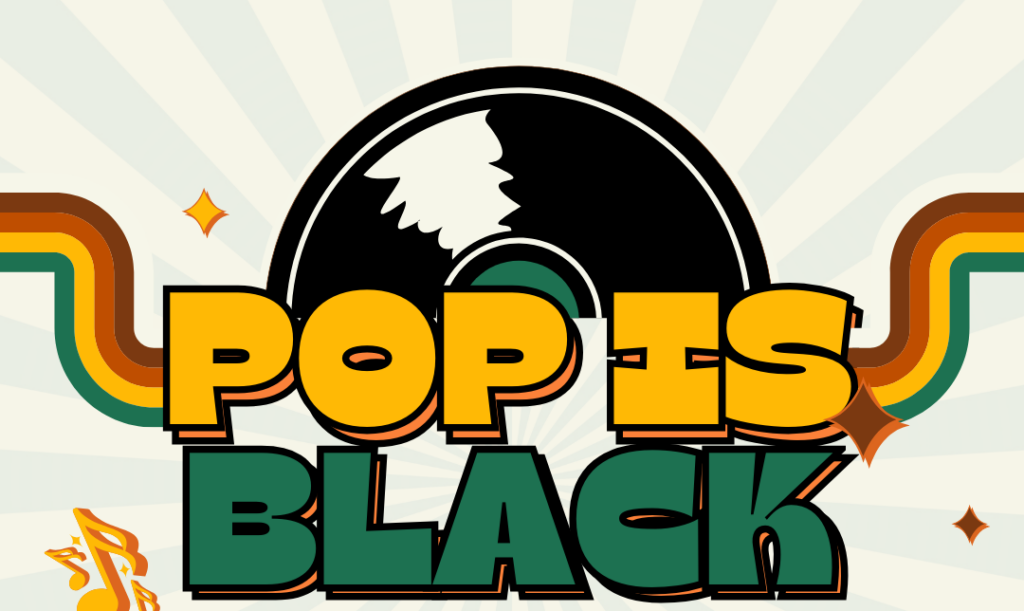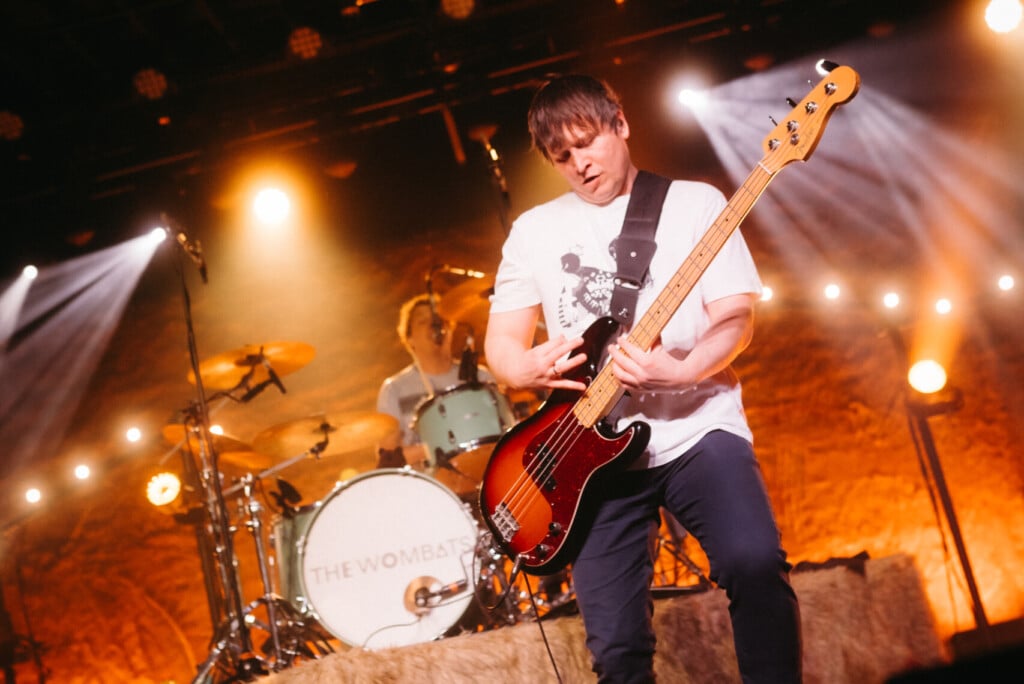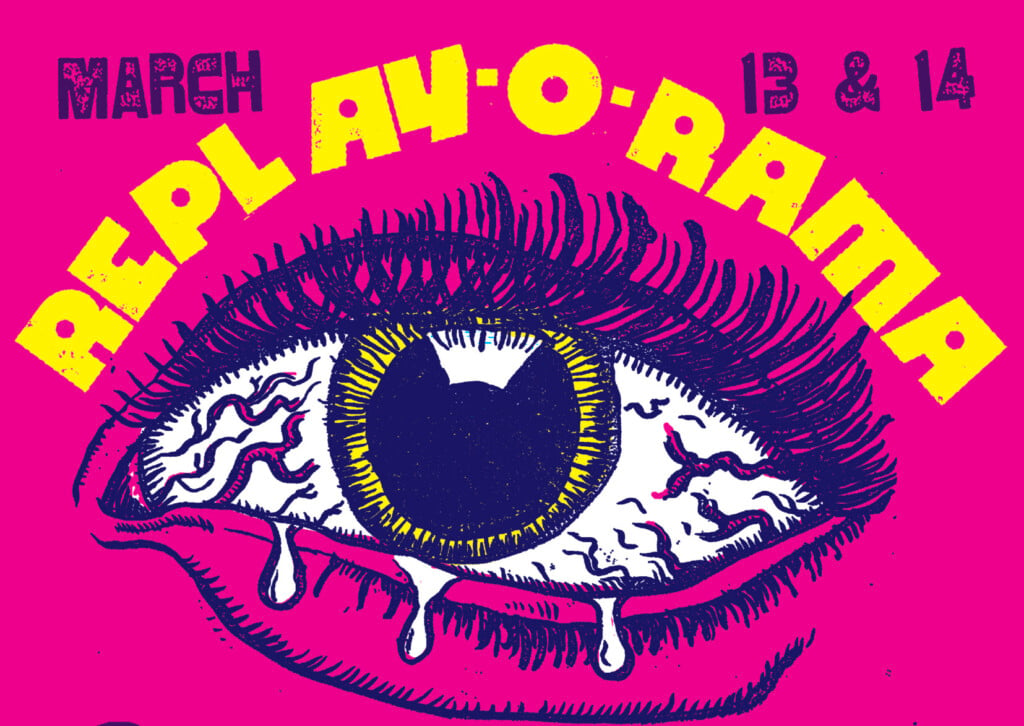Go Indigo cultivates signature sound of ’00s revitalization with new AVEC AMOR EP
Cutting fat, coloring with sonic crayons, and playing in the sandbox of pop
I met over the phone with Beau Harris, frontman of the band Go Indigo, battling his car Bluetooth speaker. It disconnected during the best part of every song.
“I’ve had this car a long time—almost eight years. I’m not going to buy a new car over a Bluetooth speaker, but I’ve thought about it,” he laughs. Despite trepidation of a song cutting out when it plays, he talks about digging his heels in, similar to the grit I found listening to Go Indigo’s new EP, AVEC AMOR, set to come out this week.
With their forthcoming first EP, Go Indigo is honing their sound, keeping what we hailed last year as “the ’00s throwback you didn’t know you needed” while staying true to their indie undertone of midwest emo and packing on the shimmer of house.
Go Indigo is bandleader and vocalist Beau Harris on synthesizers and guitar, guitarist Riley Corbin, and Jeremy Cline on bass and as lyricist. Harris cites producer Will Erickson as an essential part of the project. The group is in a constant process of refining, assessing themselves after live shows, and seeking feedback externally to get closer to that razor’s edge of incisive beats.
The Pitch: What was the process for this EP?
Beau Harris: A big part of it is time. We set out a long timetable with some of these releases. We want to not rush through things super intensely, we kinda wanna try one thing and see how it goes. Taking a longer lens on it—and just putting out music.
You’ve gotta start somewhere. I think just getting more of those repetitions in, you start to find what sounds good to you within the sound you’re making, like what are those textures you keep coming back to or song-writing devices that really work for you, and you double down on the good parts of it. And try to grow in new areas.
For us, with this EP, it was the first time that we wrote a bunch of material and then threw a lot of material away and spent time thinking about texture and instrumentation a little more. It was, how do we make the best pop music possible if we’re going to be a pop band.
Is pop music something you found you particularly enjoyed and wanted to establish yourself in?
Yeah, I think so. I also think there’s a pretty good argument to be made that there are some good poppy moments and there are also ones where it gets pretty noisy. For us, that was the balance. Writing really good pop music is a challenge. It’s got a form and a structure and there’s certain sandboxes you’re playing in. We liked the form of how we can write really, really catchy, dance-y, three-minute songs that’re not super pretentious.
But then, also I’ve been playing really noisy indie rock music for like a decade, and that’s just what comes out of my body. That was the balance: we’re noisy people and we really like rock music but we’re enjoying the form of pop music and trying to focus on writing really noisy catchy songs.
Is the form something you’ve had to learn?
Not so much the form, but where to cut fat. I think when I was a little bit younger and a little bit greener, I would try to fit too many ideas in one piece of music. I think for this band and for this record in particular, we were trying to be fairly focused. It was mainly about “How do we distill this down to the point of the song?”
A good example track of this EP was the first song, “Out of Focus,” which was originally five and a half minutes long. It was a really long song. We went into the studio with that piece as it was and the more that we worked on it and got really critique heavy, both us and our producer thought we could lose two and a half minutes out of the song.
We went through this process both in and out of the studio where we would write a song to its fullest extent and when we really went to record it we went, “All right, how do we now focus this mess down into something that keeps the best parts of what we discovered during that exploration phase?”
What are some textures you’ve enjoyed in this EP and in the past?
One texture that we’ve really come to enjoy a lot is really dry, dim-sounding drums. In our group we have multiple people that play drums. Drums for a long time were my primary instrument too. If you can have a song where drum and bass sections are really grooving and make you dance, then the song’s gonna be pretty good.
For us, we pulled a lot from electronic music. We’re trying to figure out how we can make rock drums have the texture and the feel of more electronic sounds, starting to blend that digital and analog a little bit more. For us, that ended up, like, “Man, how do we make these rock drums sound like house music?”–and vice versa, too: “How do we make these drums sounds as alive as possible?”
Another is we started to get really into ‘80s and funk music in particular. We started to pull a lot of those textures, too. There’s a lot of chorus and certain synth sounds that are evocative of that. We pulled all of these in our sonic box of crayons that we were trying to color with and see how we could Rubiks-cube them together.
What season of life are you in that created these song lyrics?
That’s such a good question. I think—this is maybe a little existential—I’m staring down the end of my twenties. I’m not quite there, but I see that shift happening. For me, I was—and have been, for the last year—have been more cognizant that I’m getting older.
As you start to get older, you decide what you want to prioritize in your life. You also have to make really uncomfortable changes that are intentional. Some of these things that you want to happen for yourself or behaviors you want to change or goals you want to achieve– they’re not going to happen by themselves.
One thing that I was wrestling with in this EP and in this stage of life is that, if you want change, you have to not only name that, but also start to make progress towards it, because no one’s going to do that for you. So, as I’m getting into my later twenties, I’ve been sitting in that a little bit more and see all these things I want to change … and the only one who can is me, which is a lot harder position to be in than when I was in my earlier twenties and maybe writing other records with other bands where I had the thought of, “This will change automatically, if I just stick it out.” That’s been this big change to go through and it’s one where your resentment changes too.
A lot of ways I felt like when I was maybe a little bit younger, and definitely writing some angrier records, I was resenting the external and like, “Why won’t things change for me?” Now I’m like, “Oh man, I’m mad at myself because I did not do X, Y, and Z,” so it goes from the external to the internal.
I feel like that goes really well with “Copy and Pasted.” That song felt very much like what you’re describing, and listening to “Starting Over” after that felt very much like a conclusion.
Yeah, definitely. Outside of music, I work in video and film and mostly doing extremely boring, not fun or sexy commercials. [laughs]. I love it as a medium, but this is my first couple of years where I’ve had to sit in a building for long periods of time. I have to go into this place of work that is really clinical and very sterile. I kept feeling like I was walking into Severance all the time. I approached that song from that spot, where not only is my job literally copying and pasting clips around, more or less, but it’s also that every day is a repeat of the last one. I found I was going into these micro-cycles on any given day.
There’s that, where I’m caught in the pattern that I’ve made for myself or allowed myself to maintain. And then in “Starting Over” it’s like, “But what happens when you break every single pattern ever and you accidentally break your life with it?”
Does playing live help you whittle down the songs that weren’t working?
Stand-up comics are really good at this. I love comedy—I’m not a standup comic. But one thing I appreciate about them is those people will write a bunch of jokes and just on blind faith try them out in public to see if they work or not. Which is crazy. I feel like a lot of the times with musicians, we don’t do that as much, or if we do, we’re very attached to the ideas as they are.
For us, we try to take the opposite approach which is, let’s go see if this is good enough. Even with these songs they changed a lot both in and out of a live context. We would play stuff and decide we did not like it at all, and we were out on it. We’re reaching this point of playing everything and seeing what works and whatever doesn’t work, we’re getting a lot less precious with.
Do you have a favorite song out of the four on the EP?
I bet if you asked all of us we would have a different answer. “Take It or Leave It” is my favorite. Part of the reason I like that song so much is because it is deceivingly simple. The verse part and chorus part have a lot of overlap. So we’re taking this simple idea and evolving it as the song goes along. In “Take It or Leave It,” we indulge in the pop stuff for two minutes and you get to that bridge section and it opens up into this midwest-emo sort of thing. That song is really representative of what makes our band sound like our band.
I really respect my little sister’s music opinion. She has awesome taste in music and is just a really funny person. When we were getting ready to pick the singles for this EP, I sent her the record and she came back and said “You should put out ‘Out of Focus’ first and you should save ‘Take It or Leave It’ for when the record comes out.”
Go Indigo’s AVEC AMOR is out now. You can anticipate their first music video releasing in a few weeks, and another EP or two on the horizon next year.







